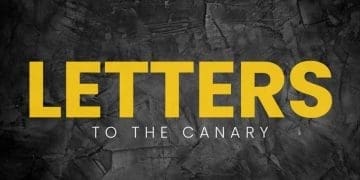On 12 September, the House of Lords met for the committee stage of the Hunting Trophies (Import Prohibition) Bill. Peers usually use this stage to go through a proposed bill and iron out the details. However, for the trophy hunting imports ban, a small group of peers used it as an opportunity to filibuster the legislation.
Time’s up
Anti-trophy hunting campaigners were cautiously optimistic back in March when the importation ban cleared the House of Commons unopposed. However, leading up to the House of Lords’ committee stage, a small group of peers tabled more than 60 amendments to the legislation. Furthermore, the peers refused to ‘group’ the amendments, forcing the house to discuss each one individually.
As a result, only five of the 62 amendments were discussed during the three-hour-long meeting on 12 September. This meant progress on the bill stalled. In order to succeed, it must receive Royal Assent by the end of the current parliamentary session on 7 November.
‘Trophy hunting is cruel and blood thirsty’
Campaigners for the law were outraged, and described the peers’ tactics as filibustering. Sonul Badiani-Hamment, country director for Four Paws UK, said:
The purposeful filibustering by a handful of backbencher Peers means that time is running out to discuss the Bill and their myriad of 64 tabled amendments. This is a wasteful course of action, wilfully taken to prevent the Bill from becoming law.
Edith Kebesiime, wildlife campaign manager for World Animal Protection Africa, said:
We are bitterly disappointed that the Hunting Trophies (Import Prohibition) Bill didn’t pass its committee stage. Trophy hunting is a cruel and blood thirsty practice that, benefits a small number of rich foreigners who plunder Africa’s wildlife for their own ‘entertainment’ with no regard for our local communities.
The UK government needs to listen to African voices – we don’t want our wildlife heritage plundered any further and want to see change. Continuing to make wild animals shoot-to-kill targets at the mercy of the wealthy is outdated in a world where public attitudes are swiftly shifting.
With time having run out on the bill, it’s unlikely that the ban on trophy hunting imports will now become las. As Born Free’s head of policy Mark Jones explained, this is a result of the legislation coming through a private members’ bill rather than a governmental bill. The Canary previously reported on the problem of passing legislation through private members’ bills in relation to the Kept Animals Bill.
Extra time
However, it is possible the government will grant the trophy hunting importation bill extra time. Four Paws UK, the Humane Society International/UK, and other campaigners gathered outside parliament on 13 September to demand exactly that.


A press release by the campaign groups under the name Coalition Against Trophy & Canned Hunting (CATCH) said:
The politicians and campaigners came together near Old Palace Yard in Westminster to implore the Government to find the necessary time to allow the Bill – a manifesto commitment – to complete its passage into law and protect the tragic victims of trophy hunting.
Top Tory MPs are also asking for more time to get the bill into law:
Our Patron @SirRogerGale statement : “As Chairman of the All Party Group for the banning of trophy hunting, I am calling on the Government to fulfil its manifesto commitment and make time available to get Henry Smith's Trophy Hunting Bill, talked out in the Lords last night, onto… pic.twitter.com/3KANuO2mNz
— Conservative Animal Welfare Foundation (@ConservativeAWF) September 13, 2023
Uncertain future
Those opposed to the trophy hunting bill claim it will harm animals rather than help them. This is based on the idea that decreasing the revenue stream to trophy hunting companies will reduce their ability to conserve the creatures.
However, as the Canary has previously outlined, barely any money actually reaches local communities. One Tanzanian report revealed only 3% of trophy hunting revenue went to community development – the rest went towards tourism facilities, airlines, hunting operators, governments, and others involved in the trophy hunting industry.
The future of the bill is currently uncertain, though its chances are now slimmer than ever. What is clear, however, is that the trophy hunting industry will fight long and hard – so long as there is still money in murdering animals.
Featured image by Mikael Tham/Wikimedia Commons and additional images by Humane Society International/UK









